About this course
The MSc (sandwich) Sensors, Data and Management is an innovative programme designed to be an interface between the University and Industry.
- Follow this application-led curriculum, designed in line with advice from industrial partners, which emphasises an understanding of the concepts and theories that underpin the theory, as well as its practical application within the real-world
- Enjoy high quality teaching, supported by practical laboratory and group activities, with state-of-the-art hardware and software facilities and excellent technical support
- This programme is available as a standard full-time Masters one-year programme (180 credits) or as an extended full-time Masters 20 month programme (240 credits).
- On both versions in semesters one and two you will study full-time at LJMU completing the taught modules.
- If you are on the one-year programme, you will complete your Dissertation over the summer.
- If you are on the 20 month programme, you will undertake the Group Design Project and your Dissertation in the second year.
Industrial organisations in different sectors have identified a gap in the market and the need for Engineers with good leadership and interpersonal skills in addition to their technical ability.
This programme aims to be an interface between University and industry. It provides appropriate training to our students in interpersonal and leadership skills as well as the traditional technical skills explored in the modules and industrial placement*.
This programme is available fulltime over one year or 20 month full time( 240 credits).
The Group Design Project aims to apply engineering, technology and scientific knowledge to a real-world design problem. Detailed ideas will be explored and developed through design, experimentation, computer modelling and/or manufacture.
Why should I choose the 20 month route?
The Group Design Project will encompass the wider aspects of social, economic, political, legislative, environmental, cultural, ethical and sustainability issues required in the modern environment.
- This route will equip you with the transferrable project management skills needed to excel in your chosen career.
- You will work in groups and meet regularly with an academic supervisor and any internal or external stakeholders in order to develop an effective team-working ethic.
- This route is designed for international students who wish to apply their knowledge to professional practice in the UK
- Industrial organisations across all sectors have identified a gap in the market for Engineers with good leadership and interpersonal skills in addition to their technical abilities.
- You will present your work through regular meetings with your supervisor as well as submitting progress reports and oral presentations. In this way you will have the chance to hone your communicative skills and leave University ready for the workplace.
- As an alternative to the group project on the 20 month programme an industrial placement is a possibility in year two.
- You will need to apply directly to companies offering placements — the offer of a placement will be subject to a successful interview with the employer. Although the University will provide support and guidance to find an appropriate placement they are not guaranteed.
- Please note that you cannot apply for the sandwich route before coming to LJMU; further information about applying to placement opportunities will be given during semester two of year one.
Course modules
Discover the building blocks of your programme
Further guidance on modules
Modules are designated core or optional in accordance with professional body requirements, as applicable, and LJMU’s Academic Framework Regulations. Whilst you are required to study core modules, optional modules provide you with an element of choice. Their availability may vary and will be subject to meeting minimum student numbers.
Where changes to modules are necessary these will be communicated as appropriate.
Core modules
Research Skills
10 credits
10 credits
The module will help prepare you to undertake your own research project and deliver the required skill set for successful completion of your investigations.
Modelling and Simulation
10 credits
10 credits
Professional and Leadership Skills
10 credits
10 credits
This module will help you to develop an awareness of the legal and ethical framework surrounding the activities of a professional engineer. You will also gain an awareness of the Emotional Competence Framework for a professional engineer. This will help you to develop a specific set of personal and social competency skills appropriate for a professional engineer, such as adaptability, creativity diversification, leveraging diversity, political awareness, leadership and team capabilities.
Industrial Context and Relationship
10 credits
10 credits
This module seeks to introduce students to contemporary theories in industrial relations and apply them within various industry contexts. Topics covered include professional ethics, codes of conduct, moral responsibility, corporate social responsibility, legal frameworks of employment, product reliability, risk and safety analysis, assessment, management, and innovation techniques for generating and evaluating solutions within industrial contexts.
Dynamic Systems Simulation
20 credits
20 credits
This module will introduce you to the complex dynamic systems simulation using Matlab/Simulink, and Interface of computer controlled system and simulation with LabView.
Advanced Programming
20 credits
20 credits
This module provides engineering graduates with the opportunity to develop programming skills using high-level language constructs. It focuses on designing and implementing engineering software solutions and aligns with United Nations Sustainable Development Goals, including Quality Education, Decent Work and Economic Growth, and Industry, Innovation, and Infrastructure.
Sensors Networks and Data
20 credits
20 credits
This module encourages the development of theoretical understanding and practical experience in wireless and sensor networks, covering concepts, protocol design, and coding techniques. It aligns with several United Nations Sustainable Development Goals, including Quality Education, Gender Equality, Decent Work and Economic Growth, Industry, Innovation, Infrastructure, and Reduced Inequalities.
MSc Dissertation
60 credits
60 credits
This project module provides you the opportunity to demonstrate your ability to drive your own deep/thorough investigation, undertake high quality academic research and demonstrate critical evaluation of your results.
Optional Modules
Group Design Project
60 credits
60 credits
This module will enable you to apply engineering, technology and scientific knowledge to a real-world design problem.
Big Data Computing
20 credits
20 credits
This module aims to develop skills in modern computing techniques for high performance analysis of large data sets. It also provides an understanding of how to translate an analysis problem to best exploit such techniques.
Project Management Fundamentals
20 credits
20 credits
The module covers the fundamental theory and concepts of Project Management. It explores and promotes contemporary principles and concepts and examines processes, tools and methodologies.
Sandwich Year Placement
60 credits
60 credits
Within this module you will have the chance to carry out an extended period of work experience at an approved partner that will complement your programme of study at LJMU.
This will give you the opportunity to develop professional skills relevant to your programme of study as well as the attitude and behaviours necessary for employment in a diverse and changing environment.
Strategic Project Environment
20 credits
20 credits
This module develops your understanding of the project environment and its impact on all phases of a project. It improves your understanding of the projects themselves and thoroughly investigates environmental influences.
Your Learning Experience
An insight into teaching on your course
Teaching methods
You will learn via lectures, tutorials, seminars, activity-based learning, group discussions, panel sessions, inverted classroom learning etc.
Applied learning
You will undertake an industrial placement during the second year of study. Interviews will take place with our industry partners to secure these placements.
How learning is monitored on your programme
To cater for the wide-ranging content of our courses and the varied learning preferences of our students, we offer a range of assessment methods on each programme.
Where you will study
What you can expect from your School
The Department of Electrical Engineering is in the Byrom Street complex of LJMU's City Campus. In addition to specialist engineering facilities, Byrom Street has high quality lecture theatres, meeting and seminar rooms plus social spaces and a large café. The Avril Robarts Library is just minutes away on Tithebarn Street.
Course tutors

Dr Princy Johnson
- Programme Leader
This programme aims to develop and nurture leadership skills through experiential learning of theory and the industrial placement experience. By working with various industries in the North West, the programme aims to create opportunities for our students to get industrial exposure and become successful leaders in their environment.
This programme aims to develop and nurture leadership skills through experiential learning of theory and the industrial placement experience. By working with various industries in the North West, the programme aims to create opportunities for our students to get industrial exposure and become successful leaders in their environment.
Dr Princy Johnson received her PhD from Kings College London. During her tenure at Nortel Networks UK Ltd, she had a patent issued for a novel re-configurable OADM. Her research interests include energy-efficient protocols for wireless sensor and mobile networks and biased random algorithms for resilience in heterogeneous networks and data fields. An avid collaborator and a registered PRINCE2 practitioner, she has put together a cohesive collaborative team from across Europe and coordinated the consortium through research activities and various UK and EU funding application processes. She has been an executive committee member of the Rail Research UK Association (RRUKA) since September 2011. Princy has been recognised as a senior fellow of the Higher Education Academy (SFHEA), UK in 2014.
-

-

-
 Reader
Reader -
 Lecturer/Senior Lecturer
Lecturer/Senior Lecturer
Career paths
Further your career prospects
LJMU has an excellent employability record with 96% (HESA 2018) of our postgraduates in work or further study six months after graduation. Our applied learning techniques and strong industry connections ensure our students are fully prepared for the workplace on graduation and understand how to apply their knowledge in a real world context.
Students enrolled on this programme acquire a range of academic and real-life skills including emotional competencies, solving industrial challenge, teamwork, constructive feedback, programming skills, and current industrial experience. Because of this experience, our graduates progress to being employed on industrial projects within the first year of their graduation, which help them to find long-term employments soon after.
Fees and funding
Tuition Fees:
- Home full-time per year:
- £9,920
Fees
The fees quoted at the top of this page cover registration, tuition, supervision, assessment and examinations as well as:
- library membership with access to printed, multimedia and digital resources
- access to programme-appropriate software
- library and student IT support
- free on-campus wifi via eduroam
Additional costs
Although not all of the following are compulsory/relevant, you should keep in mind the costs of:
- accommodation and living expenditure
- books (should you wish to have your own copies)
- printing, photocopying and stationery
- PC/laptop (should you prefer to purchase your own for independent study and online learning activities)
- mobile phone/tablet (to access online services)
- field trips (travel and activity costs)
- placements (travel expenses and living costs)
- student visas (international students only)
- study abroad opportunities (travel costs, accommodation, visas and immunisations)
- academic conferences (travel costs)
- professional-body membership
- graduation (gown hire etc)
Funding
There are many ways to fund postgraduate study for home and international students. From loans to International Scholarships and subject-specific funding, you’ll find all of the information you need on our specialist postgraduate funding pages.
Please be aware that the UK’s departure from the EU may affect your tuition fees. Learn more about your fee status and which tuition fees are relevant to you.
- International full-time per year:
- £18,250
- International year 2:
- £5,630
- Placement year international:
- £3,830
International Scholarships and payment plans
Liverpool John Moores University is committed to supporting international students by providing a range of scholarships and flexible payment plans to help students manage their tuition fees.
Scholarships
LJMU provides a variety of scholarships to support international students. Scholarships are available to self-funded students who have accepted their offer and met all the conditions outlined in their offer letter. Students must also demonstrate that they can cover living costs, travel, and other expenses associated to studying at the university. Postgraduate scholarships include tuition fee reductions and are often offered in partnership with external funding organisations.
All self-funded international students are eligible for an automatic scholarship worth up to £4,000. For more details and to view our full list of scholarships, visit the international scholarship webpages.
Deposit
All students must pay a £5,000 deposit before they can receive their CAS letter.
For more information view our deposit page.
Tuition Fee Payment Plan
After paying their £5,000 deposit, students have the option to pay their fees in full or in three equal instalments minus any internal scholarships and discounts. There are two payment options available for international students. You can either pay your tuition fees in full before enrolment or opt for a payment plan. With the payment plan, you can pay your fees in three instalments after making your £5,000 deposit. The first instalment is due before enrolment.
All payments should be made through Flywire. Full details can be found in the How to Pay Guide.
Early Bird Tuition Fee discount
We are excited to introduce a £500 Early Payment Discount to all self-funded international students. Eligible self-funded students who pay their fees by the required deadlines will get a discount which will be automatically deducted from the 1st year of tuition fees.
To see the required deadlines please visit the webpage
Entry requirements
You will need:
Qualification requirements
Undergraduate degree
- a minimum 2:2 BEng Honours degree in Electrical, Electronics or Telecommunications Engineering, or a related engineering discipline
or
- a minimum 2:2 Honours degree in Mathematics or a physical science, combined with relevant experience in an engineering field or working with Sensors and Data Analytics
Alternative qualifications considered
- MEng graduates may qualify for up to 20 RPL credits if they have previously studied one of the option modules (or an equivalent) offered at M-level
International requirements
IELTS
- IELTS 6.0
How to apply
Securing your place at LJMU
To apply for this programme, you are required to complete an LJMU online application form. You will need to provide details of previous qualifications and a personal statement outlining why you wish to study this programme.
Your university life
From accommodation and academic support to clubs and societies. Find out what LJMU has to offer.
Talk to our students
Connect with a current LJMU student for advice and guidance on university life, courses and more.
See what our students are saying
At LJMU we want you to know you’re making the right choice by studying with us. You can see what our students are saying about their experience with us through their reviews on the following websites:
Related Links
News and views
Browse through the latest news and stories from the university

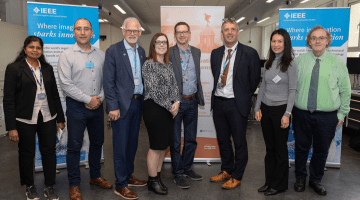
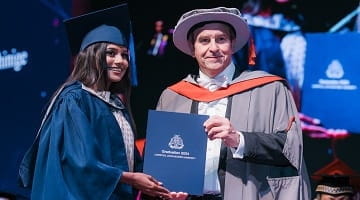
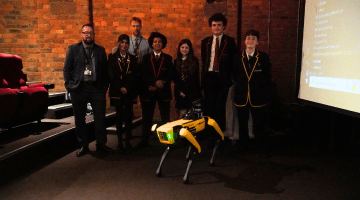
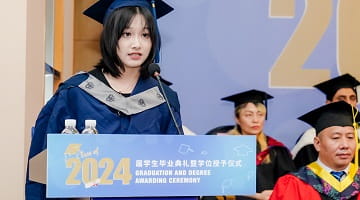

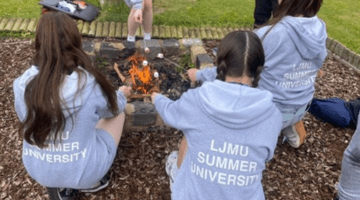


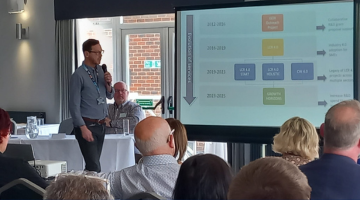
The University reserves the right to withdraw or make alterations to a course and facilities if necessary; this may be because such changes are deemed to be beneficial to students, are minor in nature and unlikely to impact negatively upon students or become necessary due to circumstances beyond the control of the University. Where this does happen, the University operates a policy of consultation, advice and support to all enrolled students affected by the proposed change to their course or module.









